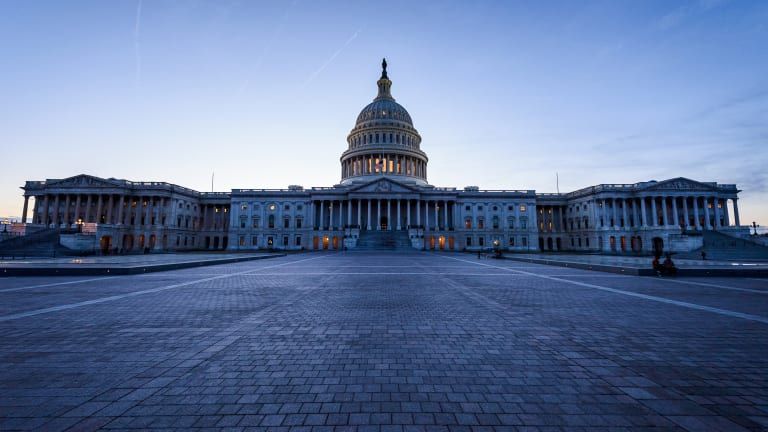LPP Submits Comment on the Cannabis Administration and Opportunity Act
LPP provides feedback on federal legalization draft bill

On Tuesday, Last Prisoner Project submitted feedback to the Offices of Senate Majority Leader Schumer, Senate Finance Chairman Ron Wyden, and Senator Cory Booker on the draft of their recently introduced bill to end the federal prohibition of cannabis. The Cannabis Administration and Opportunity Act (CAOA) provides a pathway for descheduling marijuana at the federal level and providing retroactive relief for those most affected by the criminalization of cannabis.
LPP’s feedback focuses specifically on the portions of the bill devoted to providing expungement and resentencing opportunities for those still serving a federal marijuana-related sentence and those suffering the collateral consequences of a federal marijuana-related offense on their record.
"We're incredibly excited about the potential the Cannabis Administration and Opportunity Act has to end federal marijuana prohibition and provide retroactive relief for the countless people unjustly burdened by federal cannabis convictions. That said, it's critically important the legislation doesn't just gesture towards restorative justice, but actually delivers on its promise. We very much look forward to collaborating with Congress to make the amendments that will ensure the letter of the law properly reflects its spirit,” stated LPP’s Director of Strategic Initiatives, Natalie Papillion.
LPP’s comments on the draft bill include the following suggestions for improvement:
ELIGIBILITY SCHEME
- Replace “nonviolent federal cannabis offender”. While we agree the CAOA is not the appropriate mechanism for effectuating relief for individuals convicted of crimes that have “the element of use, attempted use, or threatened use of physical force against the person or property of another,” the inclusion of the term “nonviolent” would severely impede the just and inefficient implementation of the CAOA’s restorative justice provisions.
- Facilitate legal relief (expungement and resentencing) for individuals with cannabis-adjacent criminal records. The reality of federal charging practices sees many federal “cannabis offenders” charged and convicted not of Controlled Substance Act / Controlled Substances Import and Export Act / Maritime Drug Law Enforcement Act violations, but rather with offenses like money laundering, RICO violations, etc. This means that—despite certain convictions existing solely because of marijuana’s designation as a Schedule I drug—many individuals convicted of these “cannabis-adjacent” crimes will not necessarily be eligible for the CAOA’s expungement and/or resentencing schemes. To truly fulfill the promise of the CAOA’s restorative justice provisions, we suggest the legislation account for the reality of these cannabis-adjacent violations.
IMPLEMENTATION PROCESSES
- Enact a sequestration procedure for the expungement of eligible cannabis-related criminal records. This process would guarantee “expungement-eligible” criminal records could not (a) lawfully be used for criminal justice purposes nor (b) considered in the vast majority of civil contexts. However, it would allow the subjects of said records to maintain access to critically important information about the expungement proceedings.
- Allow for judicial discretion during the resentencing process. This will ensure individuals currently serving federal cannabis-related criminal sentences can benefit from the retroactive changes in the law.
ADMINISTRATION AND OVERSIGHT
- Enable the efficient and effective administration of CAOA’s expungement and expungement notification campaigns. To guarantee the timely roll-out of these provisions, we recommend the CAOA allocate funds to pay for the costs associated with both the expungement implementation process and notification campaign, as well as specify a deadline for the successful completion of both initiatives.
- Ensure a comprehensive evaluation of the implementation of CAOA’s expungement and resentencing provisions. We suggest dedicating Opportunity Trust Grant Program funds to the U.S Sentencing Commission (or another similarly situated and well-equipped agency) to study and evaluate the implementation of the bill’s expungement and resentencing schemes.
MISCELLANEOUS
- Ensure the consideration of fines and criminal forfeiture actions. To allow for the timely processing of eligible cases, we suggest the bill’s authors determine if records relating to criminal forfeiture actions should be expunged in conjunction with the records related to the underlying criminal case. We also encourage the authors to include language that (a) contemplates the reality of fines and forfeited assets stemming from federal cannabis-related convictions and (b) gives courts instructions on how to address them.
You can read LPP's full comment here.






